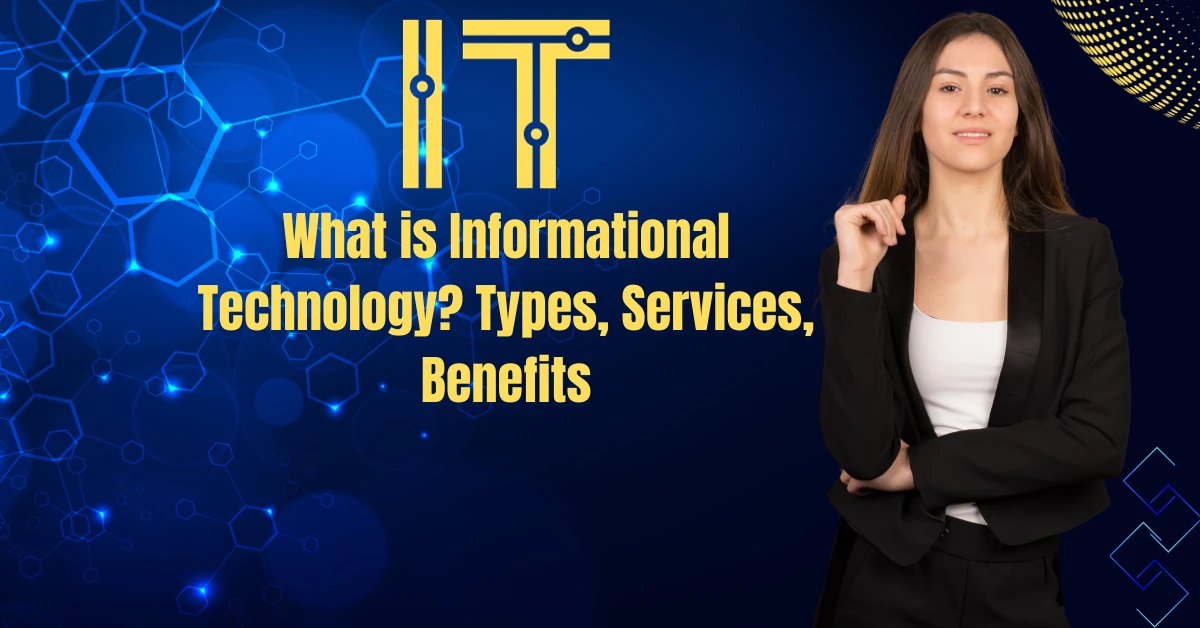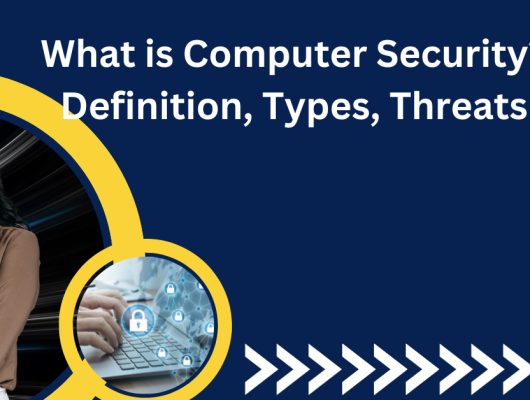Introduction
Information Technology (IT) is a critical factor in determining how we live, work, and communicate in the fast-paced, globally connected world of today. The development of the internet, the spread of smartphones, and the use of cloud computing have all contributed to the integration of IT into our daily lives. We will examine what information technology is, its function in society, the types of services it comprises, the advantages it provides, and the different job prospects it offers in this thorough book.
Technology and Its Effects on Society, revolutionizing communication, work, and daily life, but it also raises concerns about privacy and social impact. .Information Technology (IT) refers to the application of computer systems, software, and networks to store, retrieve, transmit, and manipulate data for various purposes. IT encompasses a wide range of technologies and services, including hardware like computers and servers, software applications, internet and network infrastructure.
What is Informational Technology?
The use of computers, software, hardware, networks, and electronic systems to store, process, transmit, and retrieve data and information is known as information technology, or IT for short. It includes a broad range of tools and technologies that make it easier to organize and exchange information in many formats, such as text, photos, audio, and video.
What is the Role of Information Technology?
Information technology has a vital and complex function in today’s society. Here are some of its principal functions:
Data Management:
IT makes it possible to store and handle enormous volumes of data effectively, ensuring that it is well-organized, secure, and readily available.
Communication:
IT systems allow for seamless communication across cultural and geographic boundaries using social media platforms, email, instant messaging, and video conferencing.
Automation:
IT systems provide valuable data analytics and reporting tools, aiding organizations in making data-driven decisions.
Decision Support:
IT tools and software applications enhance productivity by streamlining business operations, project management, and collaboration.
Enhancing Productivity:
IT is essential for automating routine jobs and procedures, increasing productivity, and minimizing human error.
IT systems offer useful reporting and data analytics capabilities that help businesses make data-driven choices.
The use of IT tools and software programs to streamline corporate processes, project management, and collaboration increases productivity.
Innovation:
IT fosters innovation by enabling the development of new technologies, products, and services that improve people’s lives.
Why Do We Need Information Technology?
Information Technology is essential for several reasons:
Global Connectivity:
IT connects people and businesses across the globe, facilitating communication and collaboration on a scale never before possible.
Efficiency:
IT automates processes, reducing the time and resources required for various tasks, thus increasing efficiency.
Competitive Advantage:
Businesses that leverage IT gain a competitive edge by adapting to market changes quickly and effectively.
Data Analysis:
IT enables organizations to harness the power of data, leading to better decision-making and insights.
Innovation and Progress:
IT drives innovation, leading to the development of new technologies and industries.
Types of Information Technology
Hardware:
The term “hardware” refers to the actual hardware, which includes items like computers, servers, laptops, and peripherals like keyboards and monitors. These tools serve as the building blocks for data processing and IT operations.
Software:
Computer programs and applications that let users carry out different tasks are referred to as software. Operating systems, productivity programs, and specialty software like picture editors and video games are all included.
Networking:
Setting up and maintaining computer networks that allow devices to connect and share resources is referred to as networking. Wide area networks (WANs), the internet, and local area networks (LANs) are all examples of this.
Cybersecurity:
Protecting digital assets and information from threats and attacks is the main goal of cybersecurity. It includes innovations like intrusion detection systems, antivirus software, and firewalls.
Cloud Computing:
Over the internet, cloud computing provides on-demand access to computer and storage resources. Platform as a Service (PaaS), Software as a Service (SaaS), and Infrastructure as a Service (IaaS) are all included.
Database Management:
Utilizing database systems, database management include storing, arranging, and retrieving data. Examples include NoSQL databases like MongoDB and relational databases like MySQL.
Web Development:
Web development is the creation and maintenance of websites and web applications. It encompasses front-end development (HTML, CSS, JavaScript) and back-end development (server-side scripting, databases).
Mobile App Development:
Mobile app development focuses on designing and building applications for smartphones and tablets. It includes platforms like iOS and Android.
Artificial Intelligence (AI):
AI utilizes algorithms and machine learning to perform tasks that typically require human intelligence. Examples include natural language processing and image recognition.
Virtual Reality (VR) and Augmented Reality (AR)
AR superimposes digital data over the real world, whereas VR immerses viewers in a computer-generated environment. Both are utilized for training, visualization, and gaming.
Big Data Analytics:
Big data analytics includes examining enormous databases to uncover insightful patterns and trends. It is essential for decision-making that is informed by data in many businesses.
Internet of Things (IoT):
IoT connects everyday objects to the internet to gather and exchange data. Examples include smart thermostats, wearable devices, and industrial sensors.
Blockchain:
Blockchain is a distributed ledger technology that ensures secure and transparent transactions. It’s commonly associated with cryptocurrencies like Bitcoin.
Data Science:
Data science is the study of data to extract meaningful information. Data scientists use statistical analysis and machine learning to uncover insights.
System Administration:
System administrators manage and maintain IT systems and infrastructure. They ensure networks, servers, and software run smoothly.
User Interface (UI) and User Experience (UX) Design:
UI/UX designers enhance the usability and user-friendliness of software and websites, creating intuitive and visually appealing interfaces.
E-commerce Solutions:
E-commerce solutions involve building and managing online stores and digital payment systems, enabling businesses to sell products and services online.
Digital Marketing:
Digital marketing promotes products and services through online channels like social media, search engines, email marketing, and content marketing.
IT Consulting:
IT consultants provide expert advice on IT strategy, technology adoption, and infrastructure optimization to help businesses achieve their goals.
Robotics:
Robotics encompasses the design, programming, and operation of robots for various applications, including manufacturing, healthcare, and exploration. Robots automate tasks, increasing efficiency and safety in many industries.
Services and Careers in Information Technology
Information technology (IT) is a broad and dynamic area that provides a wide range of services and job opportunities that appeal to different interests, abilities, and specializations. This section will examine the many services offered by IT specialists and the lucrative careers that are available in the sector.
Services in Information Technology
1. Managed IT Services:
Comprehensive support, upkeep, and monitoring of an organization’s IT infrastructure are provided by managed IT service providers. They make sure that networks and systems operate efficiently, reducing downtime and quickly resolving issues. Because managed IT services are frequently provided on a subscription basis, they are affordable for organizations.
2. Cloud Services:
Cloud service providers offer access to computing resources, storage, and software over the internet. They enable organizations to scale their IT infrastructure as needed, reducing the need for on-premises hardware. Prominent cloud providers include Amazon Web Services (AWS), Microsoft Azure, and Google Cloud Platform (GCP).
3. Cybersecurity Services:
Cybersecurity companies are experts at shielding digital assets from a variety of dangers, such as malware, phishing scams, and data breaches. To reduce cyber threats, they do security audits, put preventive measures into place, and provide incident response services.
4. Web Development Services:
Web development agencies create and maintain websites and web applications for businesses and individuals. They handle everything from designing user interfaces to coding the back-end functionality, ensuring an optimal user experience.
5. Data Analytics Services:
Companies that provide data analytics support businesses in gaining important insights from their data. To find trends, patterns, and chances for data-driven decisions, they use advanced analytics tools and approaches.
6. IT Consulting Services:
Businesses receive professional help and advice from IT consultants on IT strategy, infrastructure optimization, and technology adoption. They aid businesses in coordinating their IT initiatives with their overarching business goals.
Careers in Information Technology
The IT industry offers a multitude of rewarding career paths, catering to individuals with diverse skills and interests. Here are some prominent IT career options:
1. Software Developer:
Software developers design, code, and test software applications and systems. They work on a variety of projects, from mobile apps and web development to specialized software for industries like finance and healthcare.
2. Network Engineer:
Network engineers are responsible for designing, implementing, and managing computer networks. They ensure that data flows smoothly between devices and troubleshoot network issues.
3. Cybersecurity Analyst:
Cybersecurity analysts protect organizations from cyber threats by monitoring network activity, identifying vulnerabilities, and implementing security measures to safeguard data and systems.
4. Data Scientist:
Data scientists analyze complex datasets to extract valuable insights and patterns. They use statistical analysis and machine learning algorithms to inform business decisions.
5. Web Developer:
Web developers specialize in creating websites and web applications. They work on both front-end development (design and user interface) and back-end development (server-side logic and databases).
6. IT Manager:
IT managers oversee an organization’s IT infrastructure and strategy. They coordinate projects, manage budgets, and ensure that IT initiatives align with the company’s goals.
7. Database Administrator:
Database administrators (DBAs) manage and maintain databases, ensuring data integrity, security, and availability. They optimize database performance and troubleshoot issues.
8. Cloud Architect:
Cloud architects design and manage cloud-based solutions, selecting the right cloud services and configurations to meet an organization’s needs.
9. UI/UX Designer:
UI/UX designers focus on enhancing user interfaces and user experiences in software and web applications. They aim to create intuitive and visually appealing designs.
10. AI/Machine Learning Engineer:
AI and machine learning engineers develop algorithms and models that enable machines to learn from data and make predictions. They work on applications like natural language processing and computer vision.
11. Blockchain Developer:
Blockchain developers design and implement blockchain-based applications and smart contracts, ensuring secure and transparent transactions.
12. IT Consultant:
IT consultants provide strategic advice to businesses on IT-related matters. They help organizations make informed decisions about technology adoption and optimization.
13. Digital Marketer:
Digital marketers promote products and services through online channels, utilizing strategies like SEO, social media marketing, email campaigns, and content marketing.
14. System Administrator:
System administrators are responsible for managing and maintaining IT systems and servers, ensuring their reliability and security.
15. IoT Specialist:
IoT specialists work on integrating and managing IoT devices, enabling businesses to gather and analyze data from connected devices.
16. Robotics Engineer:
Robotics engineers design, program, and maintain robots used in various applications, such as manufacturing, healthcare, and space exploration.
Conclusion
Information Technology has transformed the way we live and work, connecting the world and driving innovation across industries. From hardware and software to cloud computing and AI, IT continues to evolve, offering a multitude of services and career opportunities. Embracing IT is not just a choice but a necessity in the digital age, as it empowers individuals and organizations to thrive in an increasingly interconnected and data-driven world.
FAQs
1. What is Information Technology (IT)?
Information Technology (IT) is the utilization of computers, software, hardware, networks, and electronic systems to store, process, transmit, and retrieve data and information.
2. What is the role of Information Technology?
The role of Information Technology includes data management, communication, automation, decision support, enhancing productivity, and fostering innovation.
3. Why do we need Information Technology?
We need Information Technology for global connectivity, efficiency, competitive advantage, data analysis, innovation, and progress.
4. What are some types of Information Technology?
Types of Information Technology include hardware, software, networking, cybersecurity, cloud computing, database management, web development, AI, and more.
5. What are some career opportunities in Information Technology?
Careers in Information Technology include software development, network engineering, cybersecurity analysis, data science, web development, IT management, and many others.







